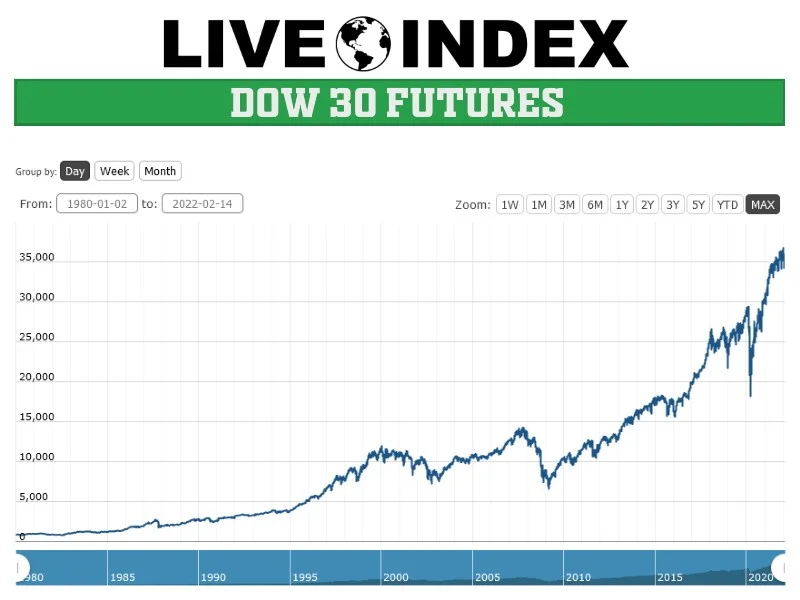Dow Jones & Market Futures: Decoding the Signals Amidst Shutdown Jitters and the Crypto Revolution
**You've Been Blocked: Why 'Access Denied' Is the Sound of a Dying Internet**
We’ve all been there. You click a link, eager for information or entertainment, and instead of a webpage, you hit a digital brick wall. A stark, sterile message appears: "Access to this page has been denied." It might blame your browser, your ad-blocker, or some vague "automation tools." It feels personal, like a door being slammed in your face.
For years, we’ve accepted this as a minor annoyance, a glitch in the Matrix. But I’m here to tell you it’s not a glitch. It’s a feature. That cold, impersonal rejection is the sound of an entire paradigm starting to crack under its own weight. It’s the last gasp of an internet built on a foundation of sand, and it’s the most exciting sign I’ve seen in years that something new, something better, is on the horizon.
When I first started connecting these dots, I honestly just sat back in my chair, speechless. We've been so focused on the shiny new apps and the ever-faster connection speeds that we've missed the foundational rot. We're fighting over the furniture while the house is sinking. That "Access Denied" page isn't just blocking you; it's a distress flare from a broken system.
The Invisible Architecture of Control
To understand why this is happening, you have to look past the surface and into the plumbing of the modern web. Take a look at any major company’s cookie policy. It’s a sprawling, legalistic nightmare, a document no sane human would ever read for pleasure. It details dozens of types of trackers: Strictly Necessary Cookies, Personalization Cookies, Ad Selection Cookies, Social Media Cookies.
These are all just different names for the same core function: watching you. They use what are called third-party cookies—in simpler terms, it means spies from one website can follow you to another, building a startlingly detailed profile of your habits, your interests, your fears, and your desires. This profile, your digital ghost, doesn’t belong to you. It’s a commodity, bought and sold by advertisers, data brokers, and platforms in a multi-billion dollar marketplace you never agreed to join.
This entire ecosystem is a fragile, baroque contraption. It’s like trying to build a skyscraper out of gossamer and glue. It requires your constant, unwitting participation. The moment you install a privacy tool, clear your cookies, or use a browser that puts your interests first, the whole thing starts to wobble. The system sees you not as a person seeking privacy, but as an error. A threat. And so it throws up the wall: "Access Denied." It’s the digital equivalent of a feudal lord barring the gates because a peasant dared to wear a disguise.

But what happens when more and more of us start demanding control over our own digital identities? What happens when the "errors" become the norm?
The Dawn of Digital Self-Sovereignty
This is where the story gets truly exciting. The escalating war between tracking and privacy is forcing a revolution. The old model is becoming technically and economically unsustainable—the sheer energy being poured into tracking people who don't want to be tracked, and then blocking them when their tools get too good, is a dead end. This is the kind of breakthrough that reminds me why I got into this field in the first place. We're not just witnessing the slow collapse of the surveillance web; we are actively building its replacement.
Imagine an internet where your identity isn’t a scattered collection of data points held hostage by a dozen different corporations. Imagine a single, secure, digital passport that you own and you control. You decide what information to share, when to share it, and with whom. This isn't science fiction; it's the core promise of emerging technologies around decentralized identity and the next generation of the web.
This shift is as profound as the invention of the printing press. Before Gutenberg, information was controlled by a select few who could afford hand-copied manuscripts. The press didn't just make books cheaper; it decentralized knowledge and shattered existing power structures. We are on the cusp of a similar moment for personal data. The idea that you can truly own your online existence is a paradigm shift of epic proportions—it means the power dynamic of the entire internet is about to flip on its head, moving from a model of corporate ownership to one of individual sovereignty.
Of course, with this power comes immense responsibility. Building this new web requires us to be more than just passive consumers. It demands our participation, our curiosity, and our courage to demand better. Are we ready to be the architects of our own digital world, or will we remain tenants in someone else's?
We're Not Just Users Anymore
That "Access Denied" message feels like an ending, but it’s actually a beginning. It’s the clearest signal yet that the old internet of walled gardens and digital surveillance is failing. It can no longer sustain itself. Every time one of those walls goes up, it’s proof that the pressure for a more human-centric, privacy-respecting web is building. We are at an inflection point, moving away from a web where we are the product and toward a web where we are the masters of our own identity. The future isn’t about breaking down their walls; it’s about building our own doors.
Tags: dow jones stock markets futures
ABAT Stock: Analyzing the Price vs. Forecast – What Reddit is Saying
Next PostKelly Services' Top Honors: Why This Signals a New Era for Work
Related Articles
